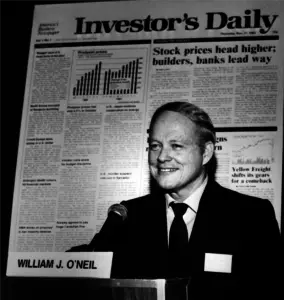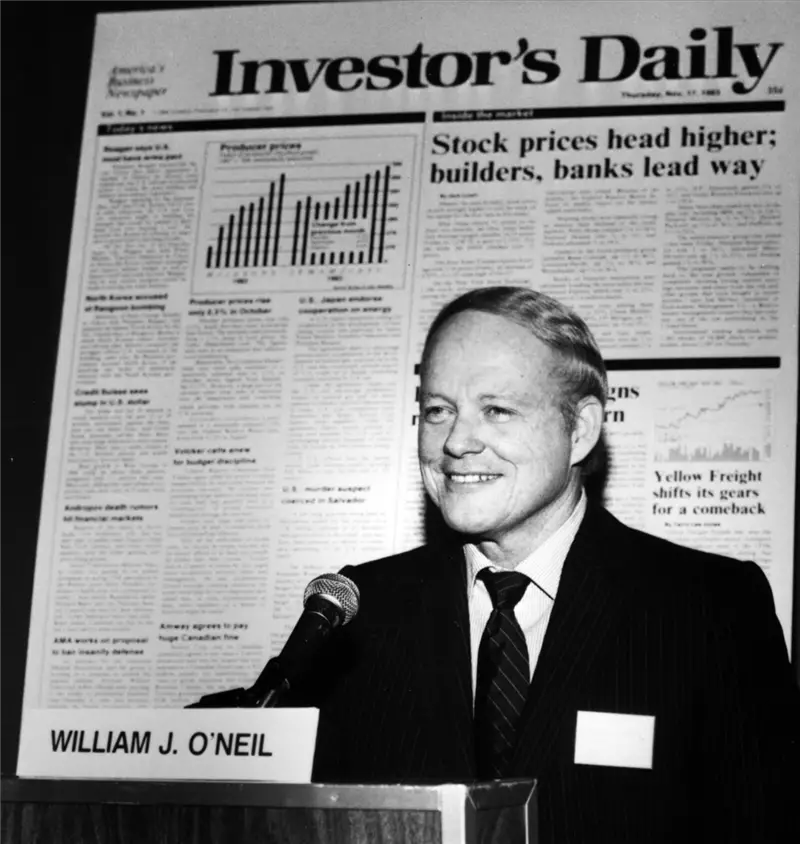
William O’Neil is likely one of the greatest stock traders of our time based on many things. O’Neil made a huge amount of money while he was only in his twenties, enough to buy a seat on the New York Stock Exchange. He runs an amazingly successful investment advisory company to big money firms. He is also the creator of the CAN SLIM investment strategy which the American Association of Individual Investors named the top performing investment strategy from 1998 to 2009. This non-profit organization tracked more than 50 different investing methods, over a 12 year time period. CANSLIM showed a total gain of 2,763% over the 12 years. The CAN SLIM method is explained in O’Neil’s book “How to Make Money in Stocks”
Those closest to O’Neil that have seen his private trading returns say that they are greater than Warren Buffet of George Soros over the same period of time. Here are some of the best things that he is quoted as having said.
RISK MANAGEMENT
- I make it a rule to never lose more than 7 percent on any stock I buy. If a stock drops 7 percent below my purchase price, I will automatically sell it at the market – no second-guessing, no hesitation.
- Some people say, “I can’t sell that stock because I’d be taking a loss.” If the stock is below the price you paid for it, selling doesn’t give you a loss; you already have it.
- Letting losses run is the most serious mistake made by most investors.
- The whole secret to winning in the stock market is to lose the least amount possible when you’re not right.
METHOD
- 90% of the people in the stock market, professionals and amateurs alike, simply haven’t done enough homework.
- The first step in learning to pick big stock market winners is for you to examine leading big winners of the past to learn all the characteristics of the most successful stocks. You will learn from this observation what type of price patterns these stocks developed just before their spectacular price advances.
- It seldom pays to invest in laggard stocks, even if they look tantalizingly cheap. Look for, and confine your purchases to, market leaders.
- What seems too high and risky to the majority generally goes higher and what seems low and cheap generally goes lower.
- Investors cash in small, easy-to-take profits and hold their losers. This tactic is exactly the opposite of correct investment procedure. Investors will sell a stock with profit before they will sell one with a loss.
- Out of the ways a company can achieve enormous success, thereby enjoying large gains in its stock price, is by introducing new products into the marketplace. We’re not talking about a new formula for dish soap. These products and companies have to revolutionize the way we live.
- Cardinal Rule #1 is to sell short only during what you believe is a developing bear market, not a bull market.
- The best way to measure a stock’s supply and demand is by watching its daily trading volume. When a stock pulls back in price, you want to see volume dry up, indicating no significant selling pressure. When it rallies up in price, you want to see volume rise, which usually represents institutional buying.
- Those who ignore what the market says usually pay a heavy price. Those who listen and who learn the difference between normal and abnormal action are said to have a “good feel for the market”.
- The number one market leader is not the largest company or the one with the most recognized brand name; it’s the one with the best quarterly and annual earnings growth, return on equity, profit margins, sales growth, and price action.
PSYCHOLOGY
- Your job is not to argue with the market, but to study it, recognize when it is weakening, and go along with it.
- Some investors have trouble making decisions to buy or sell. In other words, they vacillate and can’t make up their minds. They are unsure because they really don’t know what they are doing. They do not have a plan, a set of principles, or rules to guide them and, therefore, are uncertain of what they should be doing.
- Since the market tends to go in the opposite direction of what the majority of people think, I would say 95% of all these people you hear on TV shows are giving you their personal opinion. And personal opinions are almost always worthless … facts and markets are far more reliable
